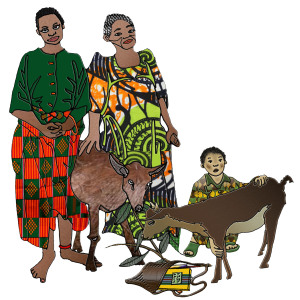Viral and highly contagious
PPR is the most devastating viral disease of small ruminants. It also can affect dromedaries and wild small ruminants. Its mortality and morbidity rates (diarrhoea, pneumonia, weight loss, fertility loss, reduced milk production) are high and can reach from 80 to 100%. The World Organisation for Animal Health (OIE) and the FAO class it among the highly contagious transboundary diseases with serious socio-economic repercussions. Affecting small livestock, goats and sheep, PPR is not considered to be a disease of economic interest but rather one of public concern that impedes the development of livestock farming at a local and national scale and threatens the food security and livelihoods of millions of poor farmers in developing countries in Africa, the Middle East, and Asia. Beyond the consequences for animal health, PPR also is a threat to the food security and health of people in these countries. |
"PPR is a catastrophe that is absolutely critical to avoid in our area because it induces poverty and threatens food security."
A project manager - Democratic Republic of the Congo, 2013
Fundamental :
PPR is listed by the OIE as a compulsorily notifiable disease in the case of outbreaks. Today, more than one billion small ruminants in over 70 countries are at risk of contracting PPR.






